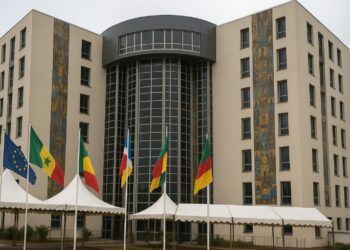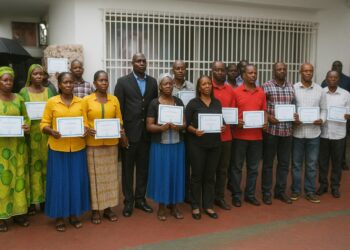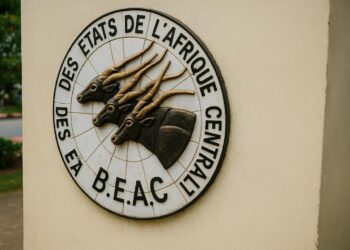A fleeting theft, a fatal response in Madibou
The narrow, red-dust streets of Ngampoko in Brazzaville’s eighth district were momentarily hushed on the afternoon when a twenty-year-old man, accused of pilfering garden produce, was brought back by an irate market gardener. Within minutes the silence gave way to the shouts of a crowd whose blows would prove fatal, according to local radio dispatches and eyewitness accounts collected by civil-society monitors. The police, arriving after the assailants had dispersed, opened an inquiry that now sits with the public prosecutor.
Such episodes of so-called popular justice are not unprecedented in the Congolese capital, yet each occurrence jars the city’s conscience. Diplomats stationed in Brazzaville note that the present case, relayed first by community broadcasters and later confirmed by the daily Les Dépêches de Brazzaville, has resonated both because of its brutality and because it exposes long-standing tensions between small producers and petty thieves in peri-urban zones.
Economic fragility at the edge of the city
Peri-urban agriculture sustains an estimated forty per cent of Brazzaville’s fresh-produce supply, the Ministry of Agriculture reported last year, and women comprise the overwhelming majority of cultivators. Rising land prices, climate variability along the Congo River basin and the lingering economic after-shocks of the pandemic have pushed many gardeners to the margins of profitability. For those whose daily earnings depend on modest bundles of amaranth, losses of a few sacks can translate into missed school fees or medical bills.
FAO field studies conducted in 2022 underline how theft and vandalism rank among the principal threats perceived by these producers. While municipal authorities have stepped up patrols near high-density gardens, coverage remains sporadic, fuelling frustration. In interviews, several cooperative leaders described a climate in which vigilance sometimes hardens into suspicion and, in rare cases, collective retribution—an escalation tragically illustrated by the Madibou incident.
The law, extrajudicial impulses and social cohesion
Congo-Brazzaville’s Penal Code imposes stringent penalties for assault leading to death, and Article 359 explicitly criminalises mob violence. The National Commission for Human Rights has repeatedly reminded citizens that private vengeance erodes social trust and undermines state authority. Yet legal scholars at Marien Ngouabi University observe that popular justice persists where citizens feel formal mechanisms are slow or costly. The Madibou case, they argue, must therefore be read as a symptom of disconnection rather than mere criminal aberration.
To bridge that gap, the Ministry of the Interior has promoted Community Security Committees, composed of elected neighbourhood representatives, police liaisons and religious leaders. In districts such as Mfilou, these committees have reportedly reduced petty crime by encouraging rapid information-sharing and mediating disputes before tempers flare. Extending similar structures to Madibou, where demographic pressures are acute, could offer a non-violent outlet for grievances while reaffirming the state’s protective role.
Government programmes and diplomatic engagement
Far from ignoring the issue, the authorities have multiplied initiatives aimed at safeguarding both livelihoods and public order. The National Programme for Urban and Peri-Urban Agriculture, launched in partnership with the African Development Bank, allocates micro-grants for fencing, solar lighting and secure storage—measures designed to deter nocturnal pilferage without recourse to force. At the same time, the UN Development Programme is assisting Brazzaville’s City Hall in piloting an electronic incident-reporting platform so residents can alert police via mobile phones rather than summoning crowds.
Foreign missions in Brazzaville have quietly welcomed these measures, viewing them as consistent with President Denis Sassou Nguesso’s stated priority of consolidating peace and inclusive growth. A Western ambassador, requesting anonymity, noted that ‘the challenge is less about drafting new laws than about ensuring that the existing protections reach every alleyway of the city’. Indeed, sustained investment in training, logistics and civic education remains essential if state legitimacy is to keep pace with urban expansion.
Toward a culture of proportionality and prevention
The fury that ended one young life in Madibou arose from economic anxiety, not political dissent, yet its reverberations touch the broader questions of governance that preoccupy Congo-Brazzaville’s partners. Observers caution that unless grievances are channelled through accessible legal avenues, isolated acts of mob justice risk rippling outward, jeopardising the social compact on which stability depends.
Encouragingly, civic-education drives led by youth organisations, with logistical backing from the Ministry of Youth and Sports, are beginning to frame non-violence as both a moral and economic imperative. Their workshops, held in school courtyards and parish halls, emphasise that every suspicion can be addressed without endangering life—a message that aligns with the government’s wider human-rights commitments.
Ultimately, safeguarding the thin line between vigilance and vigilantism will require sustained coordination among municipal officials, security services, development partners and, crucially, the cultivators whose gardens feed the city. The Madibou tragedy, while local in its origin, thus becomes a test case for how Congo-Brazzaville navigates the delicate equilibrium between community self-help and the monopolisation of legitimate force. Diplomats following the dossier suggest that the manner in which justice is rendered—and preventative measures reinforced—will shape perceptions of the country’s social resilience for years to come.










































